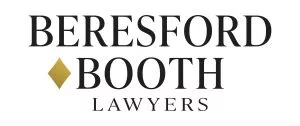- within Litigation and Mediation & Arbitration topic(s)
- in United States
- within Litigation, Mediation & Arbitration, Government, Public Sector and Corporate/Commercial Law topic(s)
- with readers working within the Insurance industries
Last month, my colleague JP. Diener wrote an excellent article here outlining many considerations that a litigant must review before pursuing an appeal. As he noted, an appeal does not allow a claimant to fully re-argue the case or present new evidence. It is not the proverbial second bite at the apple. Instead, it often focuses on substantive errors in making findings of fact or conclusions of law, and/or addresses procedural issues that may have come up during trial court litigation.
One complicating factor that a potential appealing party (the "appellant") must reflect upon is the standard of review applicable. When pursuing an appeal, the appellant must designate all the bases upon which the appellant is seeking review from the Court of Appeals (a/k/a the "assignments of error"). The Court of Appeals will then apply different standards of review depending on the nature of the assignment of error at issue. Different standards of review can result in sharply contrasting burdens on the appellant seeking relief.
The Court of Appeals has different standards of review because its role fundamentally differs from that of the trial court. Trial court judges typically resolve factual disputes and address witness credibility. These are not really the role of the Court of Appeals. On the other hand, both appellate judges and trial court judges share the significant function of making legal determinations. The fact that the trial court and Court of Appeals have some similar and some differing functions leads to the use of diverse standards of review which relate directly to the nature of the applicable assignments of error.
Some of the most common standards of review are the following:
- Substantial Evidence: This requires that substantial evidence can "persuade a rational, fair-minded person of the truth of the finding." Hegwine v. Longview Fibre Co., 162 Wn.2d 340, 353, 172 P.3d 688 (2007). A trial court's judgment will be upheld under this standard even if the Court of Appeals would have resolved the disputed facts in a different manner. This standard may sometimes be used for review of findings of fact.
- Clearly Erroneous: This standard gives a trial court substantial, but not complete, deference. Essentially, this requires that the Court of Appeals find that the evidence leads to a firm conviction that the trial court made a mistake. This too is often used for review of findings of fact.
- De Novo: A de novo review means that the Court of Appeals will engage in the same inquiry as the trial court. In other words, the Court of Appeals will conduct a full review without deference. Please note, however, that this does not mean any new evidence can be submitted, or that there is a new trial. The Court of Appeals reviews the already-closed trial court record. It just does so as if reviewing it for the very first time without giving deference. This standard of review often applies to conclusions of law made by the trial court.
- Abuse of Discretion: This requires the Court of Appeals to find that the trial court issued a decision that, essentially, no reasonable person would have made under the circumstances. In other words, the trial court's decision must be manifestly unreasonable. This is the highest standard of review, and the Court of Appeals will give great deference to the trial court's decision-making. This standard of review often can apply to a variety of issues such as the exclusion of witnesses or the fashioning of equitable relief.
Understanding what standard of review will apply to the issues that you wish to take on appeal is critical. While an appeal typically takes the form of an uphill battle already, the gulf between assignments of error subject to de novo review and those subject to an abuse of discretion standard is vast. The guidance of legal counsel can be essential to understanding whether an appeal is worth undertaking, especially since it can constitute a significant financial expenditure.
The content of this article is intended to provide a general guide to the subject matter. Specialist advice should be sought about your specific circumstances.


